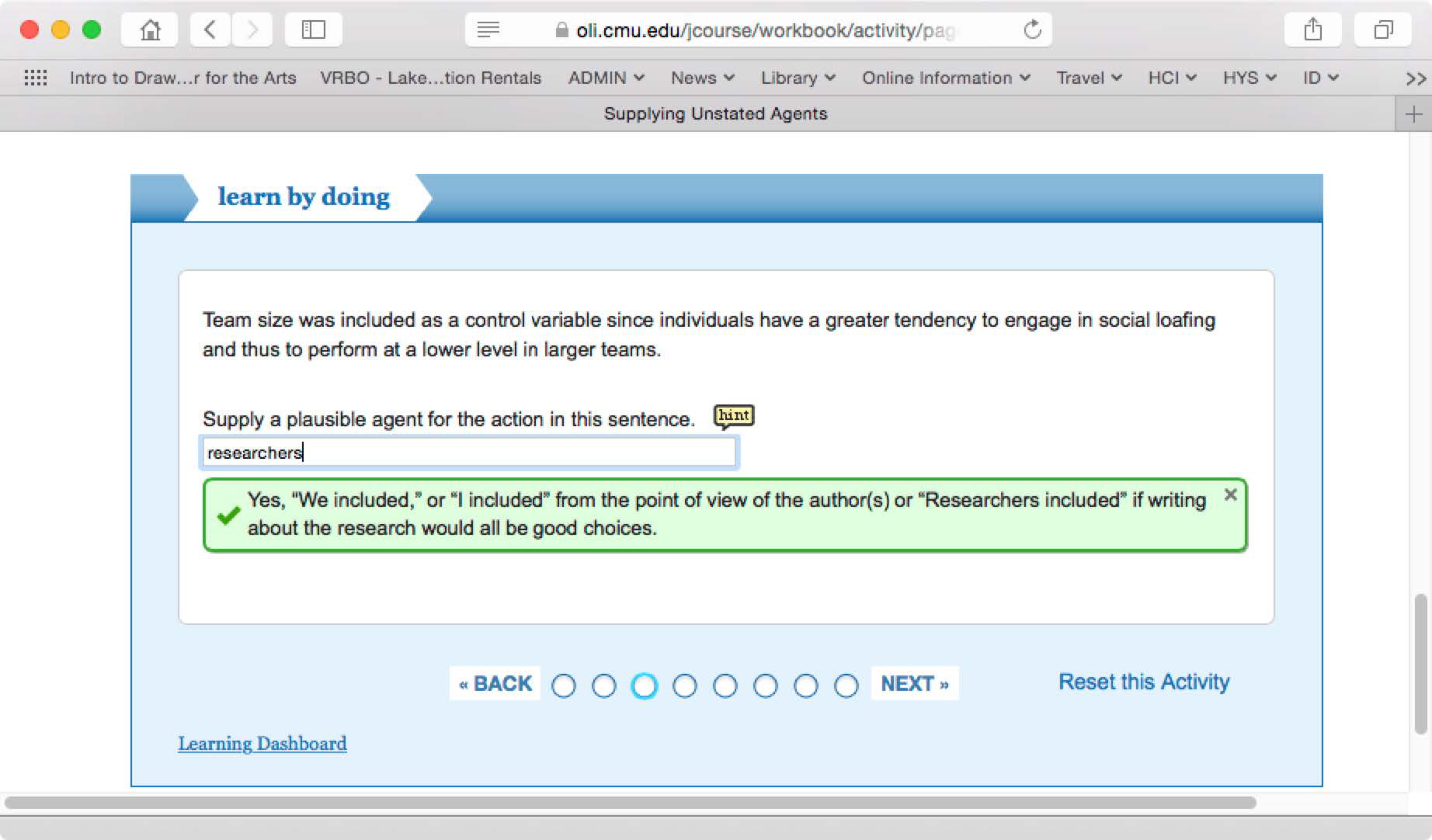Simon Initiative Tool Helps Students Polish Writing Skills
Good prose writing is something Carnegie Mellon University Professor Chris Neuwirth wants to improve. So, she conducted an investigation into how to train students to find nominalizations through technology-enhanced learning.
For students who have used Neuwirth's Prose Style tool, they might revise the above paragraph to say:
Carnegie Mellon University English Professor Chris Neuwirth is helping students learn to write clearly and think about word choices they make through the help of an online tutoring tool, which currently is available by invitation-only.
"When it comes to professional communication and technical writing, the name of the game is readability, accessibility and understanding your audience," said Instructor Andrew Gordon, who has been using Prose Style in his sections of the "Writing in the Professions" course for several years. "Prose Style really dovetails perfectly with the theme of the whole class."
Students work through the tool as homework in two sessions, each about 45 minutes long. Gordon said students from disciplines such as architecture, computer science, public policy or engineering sometimes begin thinking that writing isn't for them. But, they quickly grasp the value of clear communication and how it can augment their studies.
"The most CMU thing ever is to have technology tools like this coming out of English," said Gordon, who graduated from CMU in 2012 with a master's degree in professional writing. "All of our departments are doing great research, and the humanities are no exception."
The tool walks students through sentences to help understand the pros and cons of word choices. Earlier versions of the tool included multiple choice exercises. Neuwirth has continued to work with collaborators to improve the tool, and for the next iteration, she and others are working on creating a more sophisticated version that will use machine learning and broader open-ended exercises to provide more feedback.

The Prose Style created by Chris Neuwirth provides immediate feedback to users.
Prose Style is an example of work in CMU's Simon Initiative, which harnesses cross-disciplinary learning at the university and helps improve student learning outcomes.
"Carnegie Mellon and its history and culture of collaborative interdisciplinary work just makes this the perfect place for work such as this," Neuwirth said.
Neuwirth received one of the first Simon Initiative ProSEED grants several years ago to build the initial system.
"That grant was terrific in allowing me to help get Prose Style into the Open Learning Initiative website," Neuwirth said. "After that, we did some testing with individual users and deployed it to one section of 'Writing for the Professions.' Then we analyzed what those students were doing and continued with the iterative design and test process."
Collaborators have included Carolyn Rosé, a professor in CMU's Language Technologies and Human-Computer Interaction institutes; Ari Klein, who graduated in 2016 with a doctorate in rhetoric; Gordon; additional course instructors who used the module; and learning engineers from CMU's Eberly Center for Teaching Excellence and Educational Innovation who provided design and implementation support.
Also among the collaborators is Marsha Lovett. Lovett is associate vice provost for education innovation and learning analytics, director of the Eberly Center, and co-coordinator of the Simon Initiative. She worked with Neuwirth at various phases of the project to help with resources and designing studies to determine the tool's effectiveness.
"Chris has extended and sustained the project beyond that initial funding, so the goal of 'seeding' innovative work has really occurred here," Lovett said. She added that Prose Style has been a great model of Eberly Center and Simon Initiative practices, such as targeting a known teaching or learning challenge and building, testing and improving a resource in a way that can be adjusted as data is collected.
"Developing technology-enhanced learning tools that are designed based on past research, iteratively improved based on new data and effectively leverage multiple cutting-edge technologies is a complex process and requires colleagues with different areas of expertise working together," Lovett said. "Not only does CMU have deep strength in the relevant areas, but we have a culture of working together across disciplines to address societal challenges."